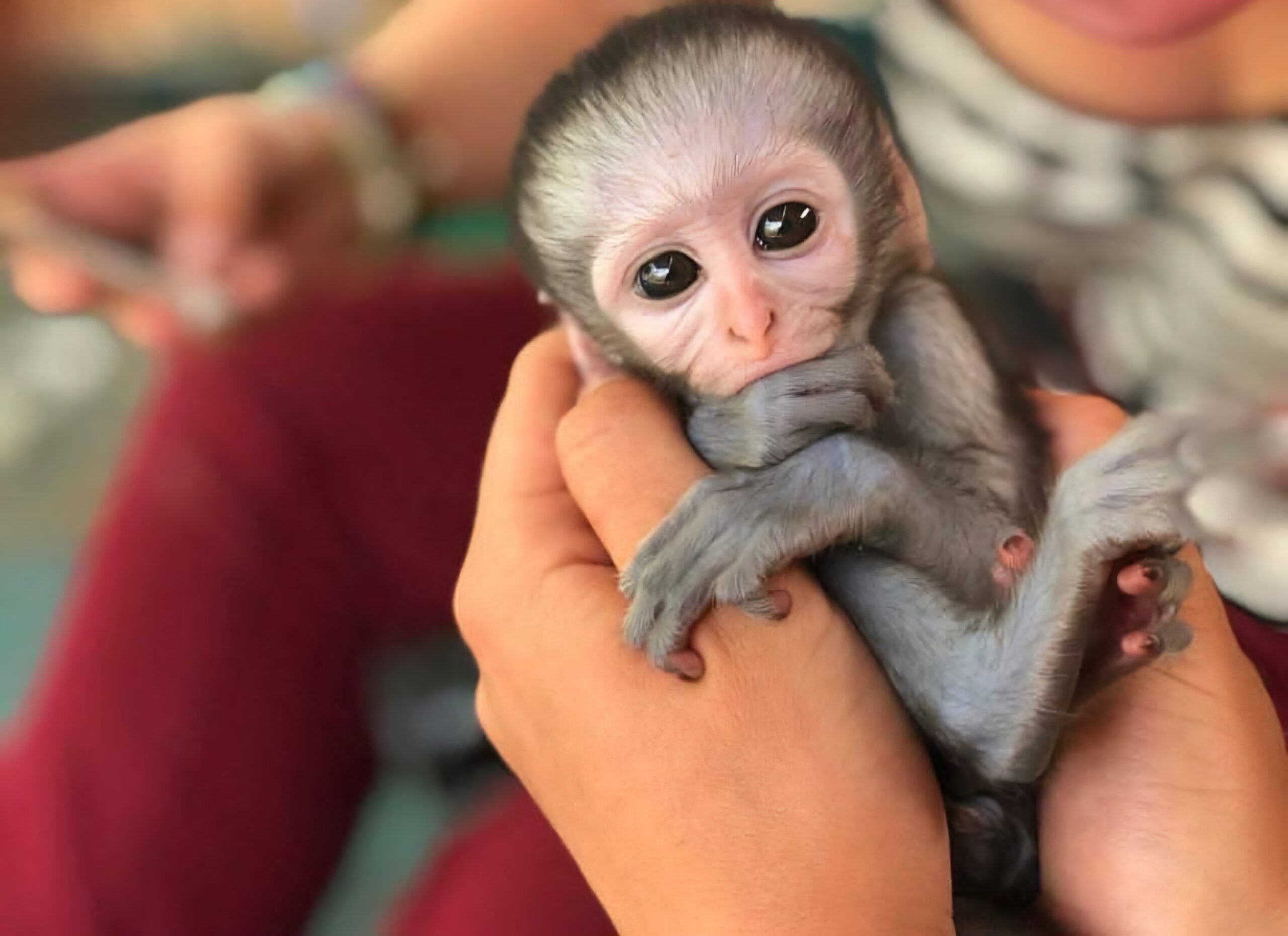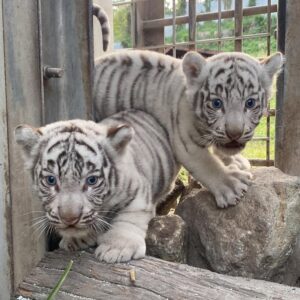Description
The Intelligent Capuchin Monkey: A Complete Guide to Care and Ownership
Introduction to the Capuchin Monkey.
The Capuchin monkey (Cebus spp.) is one of the most intelligent and charismatic primates, making it a sought-after exotic pet for enthusiasts. Native to Central and South America, these small monkeys are named after the Capuchin friars due to their distinctive facial markings resembling a monk’s hood. Renowned for their problem-solving skills and playful personalities, Capuchins have starred in movies and TV shows, showcasing their remarkable abilities.
However, owning a Capuchin is a lifelong commitment that requires extensive knowledge of their behavior, diet, and habitat needs. This guide covers everything you need to know about Capuchin monkeys, from their physical traits to legal considerations, ensuring you make an informed decision before adoption.
Physical Characteristics of the Capuchin Monkey
Capuchin is easily identifiable by their unique features:
-
Size: They weigh between 3 to 9 pounds, with a body length of 12 to 22 inches and a prehensile tail of similar length.
-
Coat: Their fur ranges from light brown to black, with a lighter face, chest, and shoulders.
-
Tail: Their prehensile tail functions like a fifth limb, allowing them to grasp branches and objects with precision.
-
Lifespan: In captivity, Capuchin can live up to 40 years with proper care.
These physical traits make them agile climbers and highly adaptable to various environments.
Behavior and Temperament of Capuchin Monkeys
Capuchin are highly social, intelligent, and energetic animals. In the wild, they live in troops of 10 to 35 individuals, relying on complex social hierarchies. As pets, they exhibit the following behaviors:
-
Playful & Mischievous: They love toys, puzzles, and interactive games.
-
Highly Intelligent: They can learn tricks, use tools, and solve problems.
-
Emotionally Complex: They form strong bonds but may develop anxiety or aggression if neglected.
-
Vocal Communicators: They use sounds, facial expressions, and body language to express emotions.
Due to their high intelligence, Capuchins require constant mental stimulation to prevent boredom and destructive behaviors.
Capuchin Monkey Care Guide
1. Housing Requirements
A Capuchin monkey needs a large, secure enclosure that mimics their natural habitat:
-
Spacious Cage: Minimum 6 ft x 6 ft x 6 ft with climbing structures.
-
Environmental Enrichment: Branches, ropes, swings, and hiding spots.
-
Outdoor Access: A safe, enclosed outdoor space for sunlight and exercise.
2. Diet & Nutrition
Capuchin monkeys are omnivores, requiring a balanced diet:
-
Fruits: Apples, bananas, berries (in moderation).
-
Vegetables: Leafy greens, carrots, sweet potatoes.
-
Protein: Insects (mealworms, crickets), cooked eggs, lean meats.
-
Supplements: Calcium and vitamin D3 to prevent deficiencies.
Avoid processed foods, chocolate, and caffeine, as they are toxic.
3. Exercise & Mental Stimulation
To keep a Capuchin monkey happy:
-
Daily Playtime: At least 3-4 hours of supervised interaction.
-
Puzzle Toys: Food-dispensing toys to encourage foraging.
-
Training Sessions: Teach tricks using positive reinforcement.
4. Social Needs
Since Capuchin monkeys are social, they need:
-
Human Bonding: Regular interaction to prevent loneliness.
-
Possible Companionship: Some benefit from another Capuchin, but introductions must be supervised.
Legal Considerations for Owning a Capuchin Monkey
Before adopting a Capuchin, research local laws:
-
Permits & Licenses: Many states/countries require special permits.
-
Veterinary Regulations: Some areas mandate health checks.
-
Bans on Ownership: Certain regions prohibit keeping primates as pets.
Always verify regulations to avoid legal issues.
Why Choose a Capuchin Monkey as a Pet?
Owning a Capuchin can be rewarding due to their:
✅ High intelligence & trainability
✅ Affectionate & playful nature
✅ Long lifespan (up to 40 years with proper care)
However, they are not ideal for everyone due to their demanding care needs.
Interesting Facts About Capuchin Monkeys
-
Tool Users: They use rocks to crack nuts and sticks to extract insects.
-
Cultural Behaviors: Some wild groups have unique traditions, like rubbing onions on their fur as insect repellent.
-
Eco-Friendly Role: They help forests by dispersing seeds.
Conclusion: Is a Capuchin Monkey the Right Pet for You?
A Capuchin is a fascinating, intelligent companion that requires dedicated care, socialization, and a stimulating environment. If you’re prepared for the long-term commitment, a Capuchin monkey can be a deeply rewarding pet.
Ready to learn more? Visit exoticpetscare.com for expert advice on adopting a Capuchin monkey or exploring other exotic pets!







Reviews
There are no reviews yet.